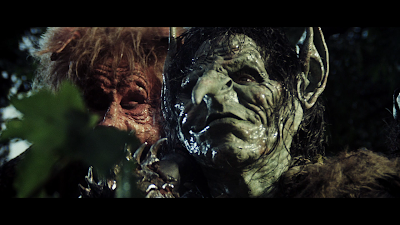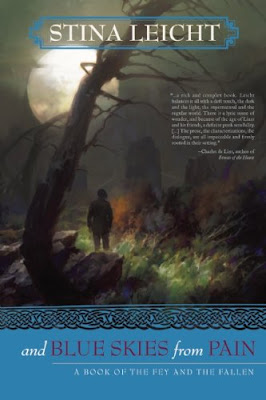First, read this.
Have you read it now? Good. I want to start by briefly talking about two of the central problems that Ms. Bourke rightly struggles with throughout her post (and which many readers had issues developing or agreeing to on their own) -- definitions and the perception of their application. For the sake of space and time -- you should read the actual thread anyway -- I'm going break this down into little, methodical sections.
sort of violent conquest. Thus, Lord of the Rings and A Song of Ice and Fire share something in common with Karen Miller's Kingmaker, Kingbreaker series. What is crucial, for me, is that the stakes are greater than a single, isolated community.
"Conservative," however, is a far simpler term to define. While some arguments about its supposed meaning are interesting, they tend to rely on isolated meanings within individual communities, which themselves are often reductive and meaningless. Saying that "conservative" means "smaller government" is to fall prey to a particular narrative about the term, one which itself is often self-contradictory. "Conservative," then, must be taken not for what people say it is, but what it does. It ultimately comes down to roots. If conservative is both "restrained" and "protective," then it follows suit that the term refers to a wide range of possibilities: from traditional cultural movements to general conservation, and so on and so forth. This is partly why we identify "conservative" most often in opposition to "progressive," as the latter actively seeks change (not always "good" change), where the other frequently wants to prevent or slow it down (not always a "bad" thing).
If we take as given that "conservative" rests in opposition to "progressive," I think it becomes clear that much of what falls under the "epic fantasy" category is neither wholly one or the other -- with exception, of course. Take Lord of the Rings as an example. From the start, the major conflict of the novel centers around the ring and preventing some other force (the progressive change) from using it to take over. This is an inherently conservative idea: maintaining the status quo. And that's not a bad thing in this case. Sauron, after all, would likely change the world of Middle Earth so drastically as to render the limited freedoms of such a world void, thus plunging everyone into "darkness" (a melodrama that rests on an assumption). Avoiding that problem is naturally conserving the present because it is simply the better option. But the narrative is not wholly conservative, for one of the subplots is the "Return of the King," which assumes that one man will return to his rightful place among his people, thus bringing back a lost ideal and taking the world of Middle Earth into its next mythic phase: the Age of Man. Thus, the ending of Lord of the Rings offers a progressive shift away from the status quo. We can assume that certain things will always remain the same (conserved), but other things will change (progressed) -- hopefully for the better.
This is true for many other epic fantasies too. Karen Miller's Kingmaker, Kingbreaker series follows a similar conservative/progressive structure. The narrative opens with the ascension of a previously "crippled" (non-magic) son, who must protect the kingdom against the faltering "dome" that protects everyone from the dark forces beyond (forces connected to the goddess who made magic possible -- it's complicated). But because he has no true magic himself, he must rely on a "commoner" (Asher) to do the work for him. Thus, Asher, the protagonist, gets caught up in the court politics of a world where only certain people are allowed magic, ensuring a certain degree of "slavery" among certain classes, and untold freedoms among others. The narrative is, more negatively than in LOTR, about conserving the present -- protecting it from what will undoubtedly look a lot worse. But the end of the duology posits an entirely different future: one where Asher ascends to power, upending the entire social system of this isolated "continent" and taking the people there to the next stage in their cultural development. These are good things, we assume, because it means granting certain freedoms to everyone (progressing) while maintaining certain privileges for others (conserving).
All of this is to suggest that there are simply no easy dichotomies when it comes to conservative and progressive. The two work against and with one another for the betterment of the whole. At least, that's how it's supposed to work. In a great deal of fantasy, it works wonderfully. In real life? Well, you just have to look at the U.S. Congress for your answer...
Thoughts?







































